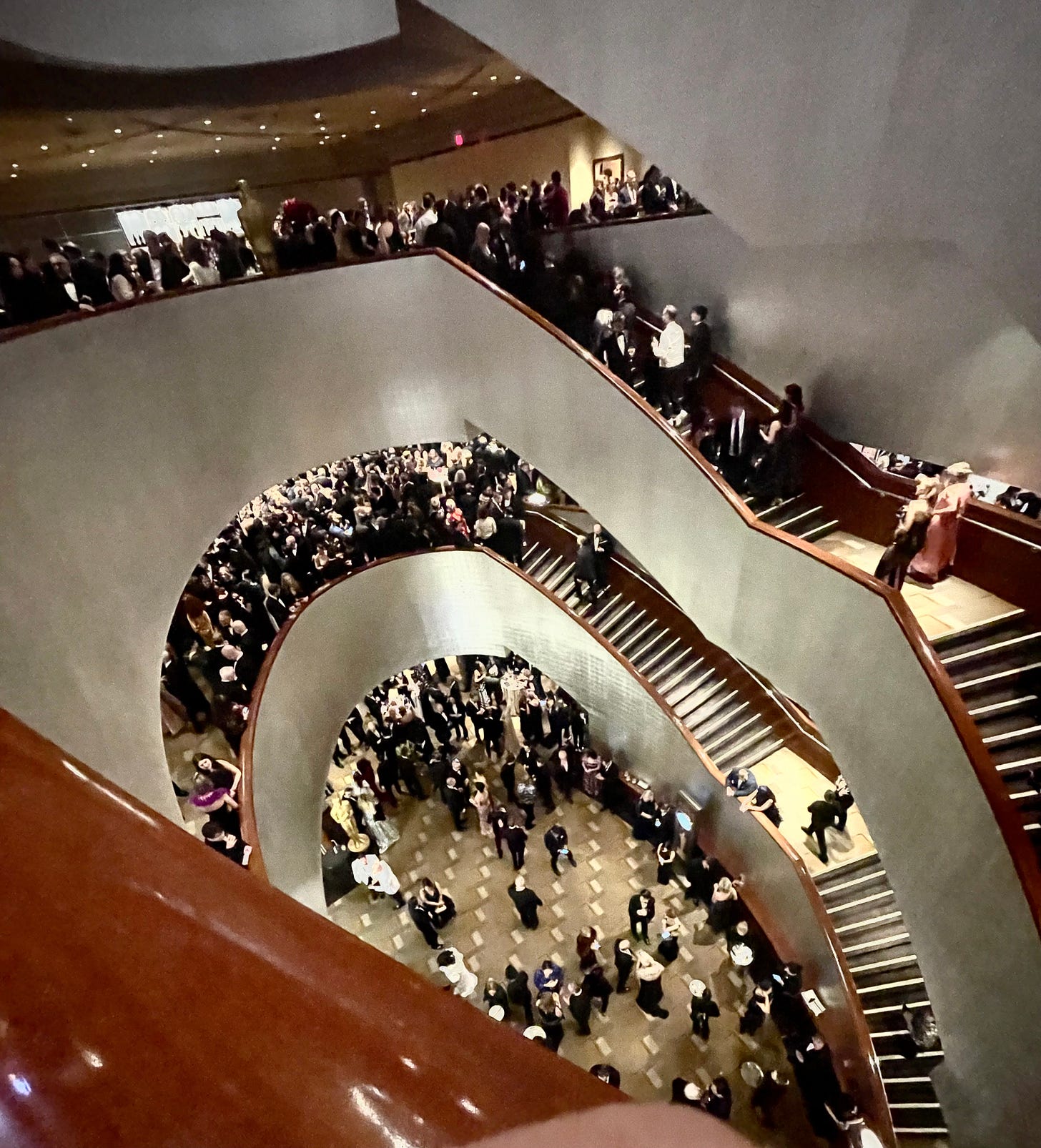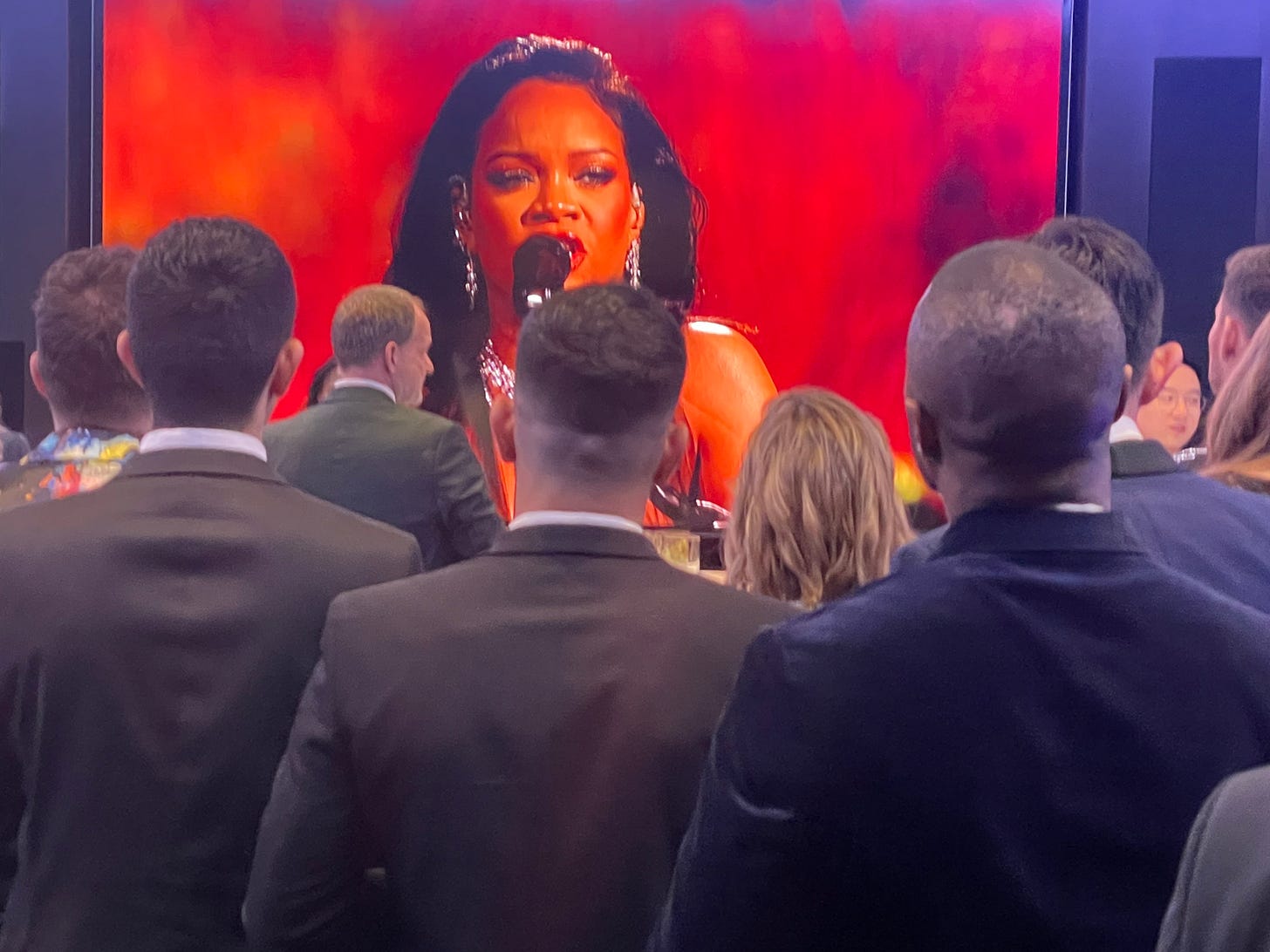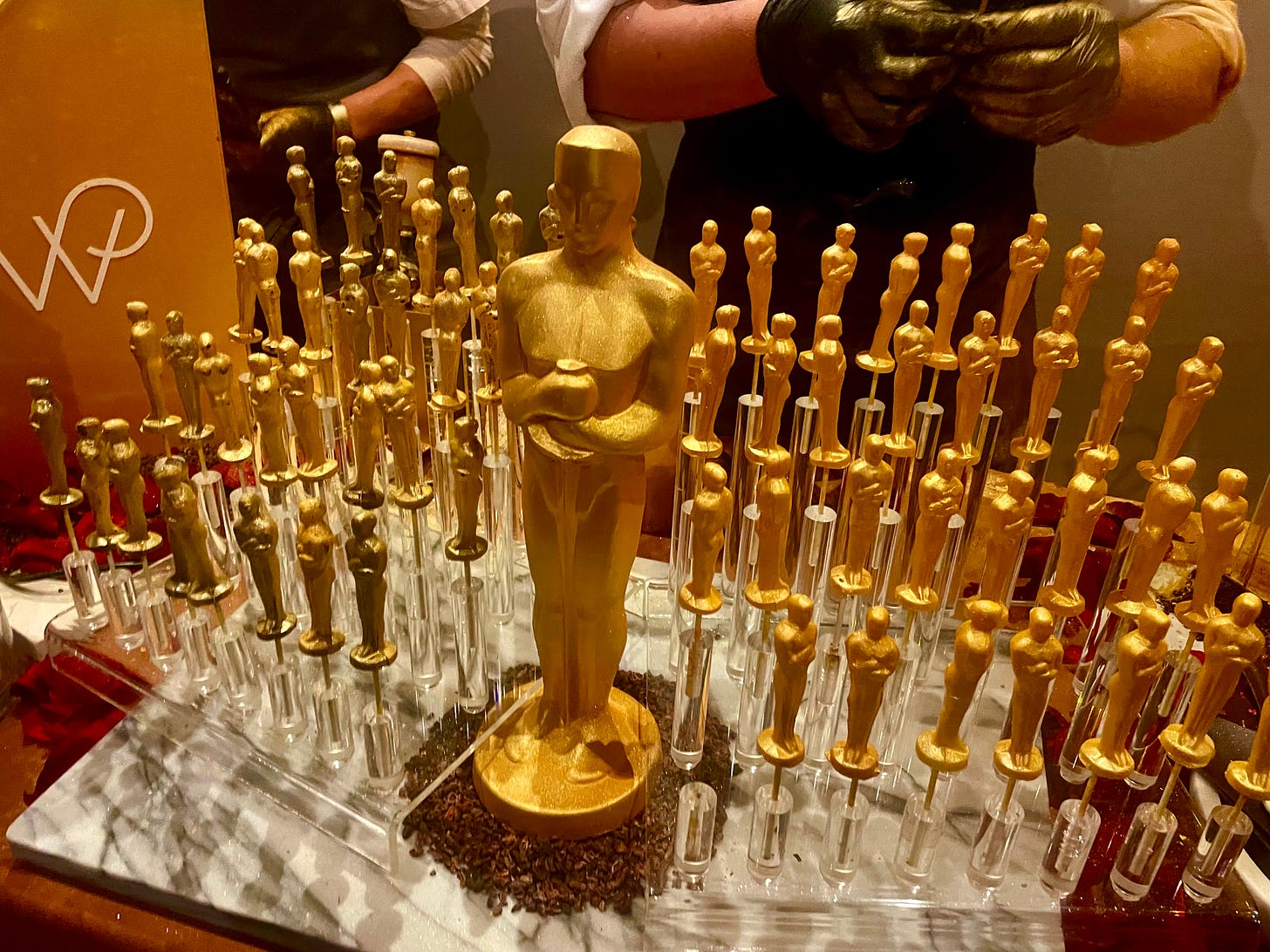Rushfield: Seems Like Old Times at the Oscars
Inside the Dolby: The Academy shows entertaining still lurks in its bloodstream
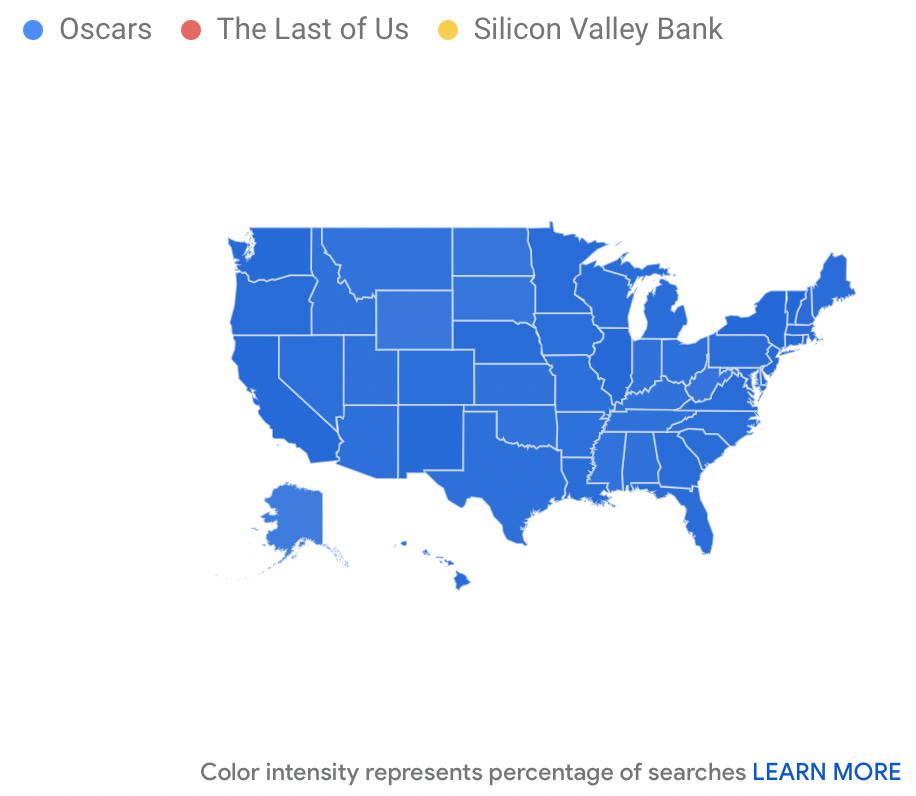
So the bottom didn't fall out.
This shouldn't be an accomplishment but when you look back over the past few years and survey the accumulation of debacles, scandals and cataclysms, it had become a very open question whether these people were capable of producing a few hours of television without complete disaster befalling them.
For the past few years, every Oscar season had become a trail of tears, with culture war chasms opening up every few weeks, and the show itself an exercise in rotating varieties of incompetence.
One looks back on all the brilliant innovations of the past few years and it really just takes your breath away, all the different ways that things could go so very wrong: the train wreck at the train station, ending the show with Best Actor without anticipating that a certain dramatic crescendo might not come to pass, the year of no host, the skateboarding tribute to James Bond, et cetera, et cetera, culminating of course in The Slap.
It had become an open question whether Oscar was in fact cursed or was actively trying to chase away its last remaining viewers.
It's close to miraculous that the Academy managed to produce an entire season without incident. The Andrea Riseborough debacle stands as the year's biggest kerfuffle, and that never rose beyond the level of by-law arcana, failed to become a culture war proxy battle that engulfed the entire race and left everyone covered in a residue of bad feelings, the kind that had become a standard set piece of Oscar season.
And after the 10-year live demo in the many ways a show can go wrong, it felt like a throwback to some simpler time to watch a show proceed without any major misstep. Applause to new Academy CEO Bill Kramer and president Janet Yang. Clearly after last year's Oscardammerung the priority was to get through drama-free, and they did that. Host Kimmel was mildly funny and efficient in keeping things moving. Not every joke and bit hit the bullseye, but nothing fell into a quagmire of drawn-out painfully non-funny. The speeches, as has been noted, were uplifting and generically inspirational, with many hitting the "hold on to your dreams" note.
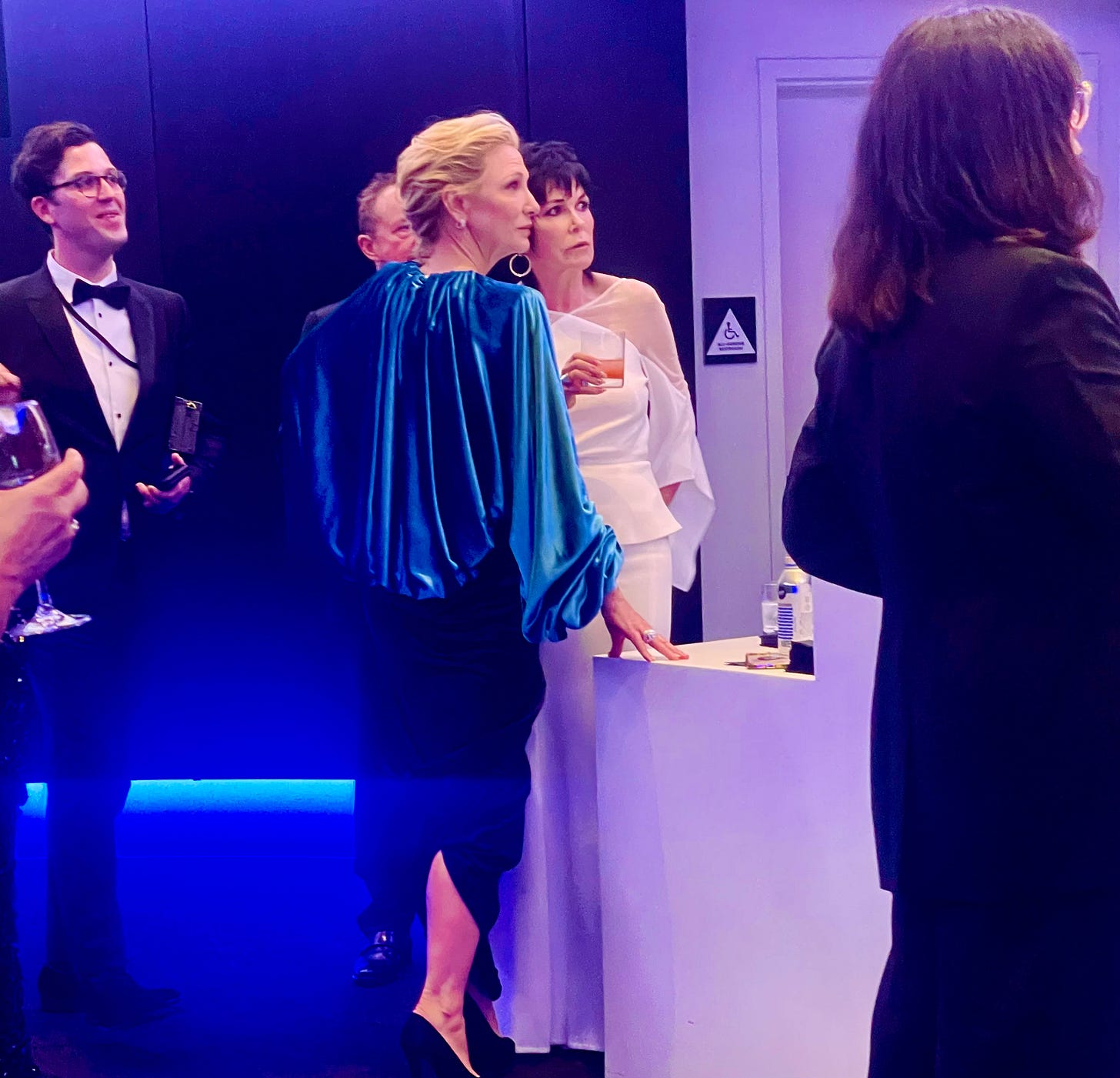
The night was miraculously even free of grandstanding political statements, which for many years now have seemed part of the basic wallpaper of an Oscar show. Somehow, nary a scolding finger was wagged all night. Even the "famous people" in the audience, when the camera cut to them, seemed to be having fun, not paralyzed in some sort of faux grandeur/solemnity that typically presides over a night that had become so enchanted with its own august-ness it hadn’t noticed the audience had moved on.
It was almost as though everyone involved had gotten the message: "the audience is leaving" and decided to actually do something about it.
The Winners
The choice of winners is another question. EEAAO is the smash hit of the century compared to many recent winners ($107.4 million U.S.), but still...
David Poland had a notable stat:
In the 20 Oscar seasons before the 2009 expansion to 10 or as-many-as 10 Best Picture nominees (1989 - 2008), there were 5 nominees and only in one year was the winner not the #1 or #2 box office grosser. (American Beauty was #3 in 1999… Shakespeare in Love was #2 to Saving Private Ryan the year before).
Clearly, that ship has sailed.
As has been noted, this year was a big step up in the popularity of the nominated films, but that said, while Top Gun and Avatar were nominated, neither was a serious contender for the big prize. This isn't going to become a real race between Avengers 6 and Frozen 3 anytime soon.
I played a little game with a few people at the Governors Ball. Now this was a group of people who were at the Academy Awards and all were involved in the Oscar sector to varying degrees. Someone threw out the brutally tough trivia question, "What won Best Picture last year?"
I won't tell you how long it took for the group to come up with the answer. Let us say that iPhones were eventually consulted.
Pre-last night, it was an open question whether Hollywood was capable of throwing an awards ceremony with a modicum of competence; one that didn't turn into a multi-month escalating embarrassment that played like a living Gaspar Noé film, searching for the farthest reaches from conventional definitions of entertainment.
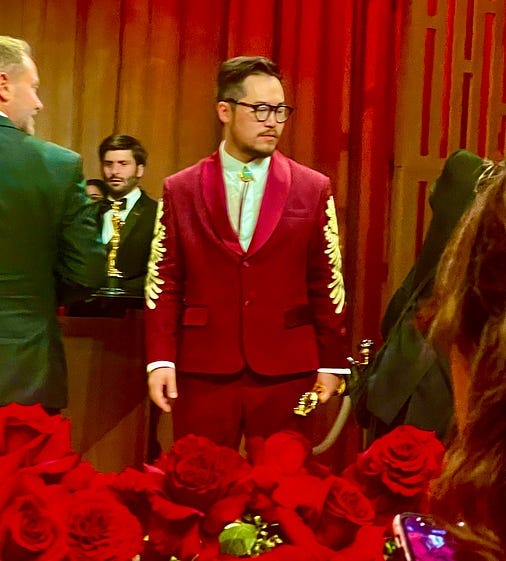
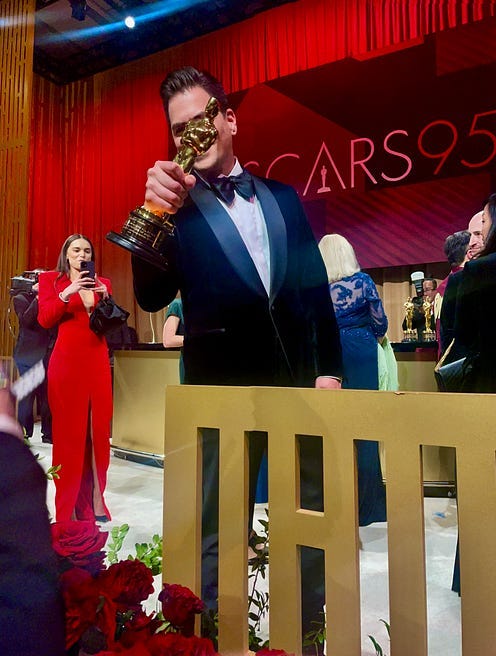
Last night, the Academy having very smartly turned the night over to TV producers, showed they can produce an awards event around film, heavy on traditionally uplifting themes. The acting winners drew on The Academy's very very favorite story — the forgotten, passed-over performer given one more chance that wows the world.
In the last few months, with the return to the theaters, it felt a bit like a number of fevers have broken: the streaming utopia fever, what critics would call "woke" crimes-of-cinema fever (on a night where it was a joyful near-sweep by Asian-Americans and people of Asian descent); the seeming competition to see who could tear the whole thing apart first. We're actually turning our eyes back to the possibility of entertaining massive numbers of people again.
There was also, post-streaming fever, the amazing phenomenon of the Oscars actually coming out and celebrating seeing movies in theaters — a cause the show and organization has seemed ambivalent at best about in recent times. (The Netflix winners of the Best Animated and Best Foreign prizes notwithstanding.) But what a return from insanity: the awards body adjacent to the Motion Picture Association celebrating theatrical motion pictures.
The question is how exciting can a race between widely unseen films be to a wide audience? How much room in today's culture can there ever be for a three-hour pageant of people in tuxedos making speeches and thanking their producers?
Also worth pondering: what does the sweep by the frugal A24 say to its massively outspending rivals about the half-year long leviathan this awards trail has become?



